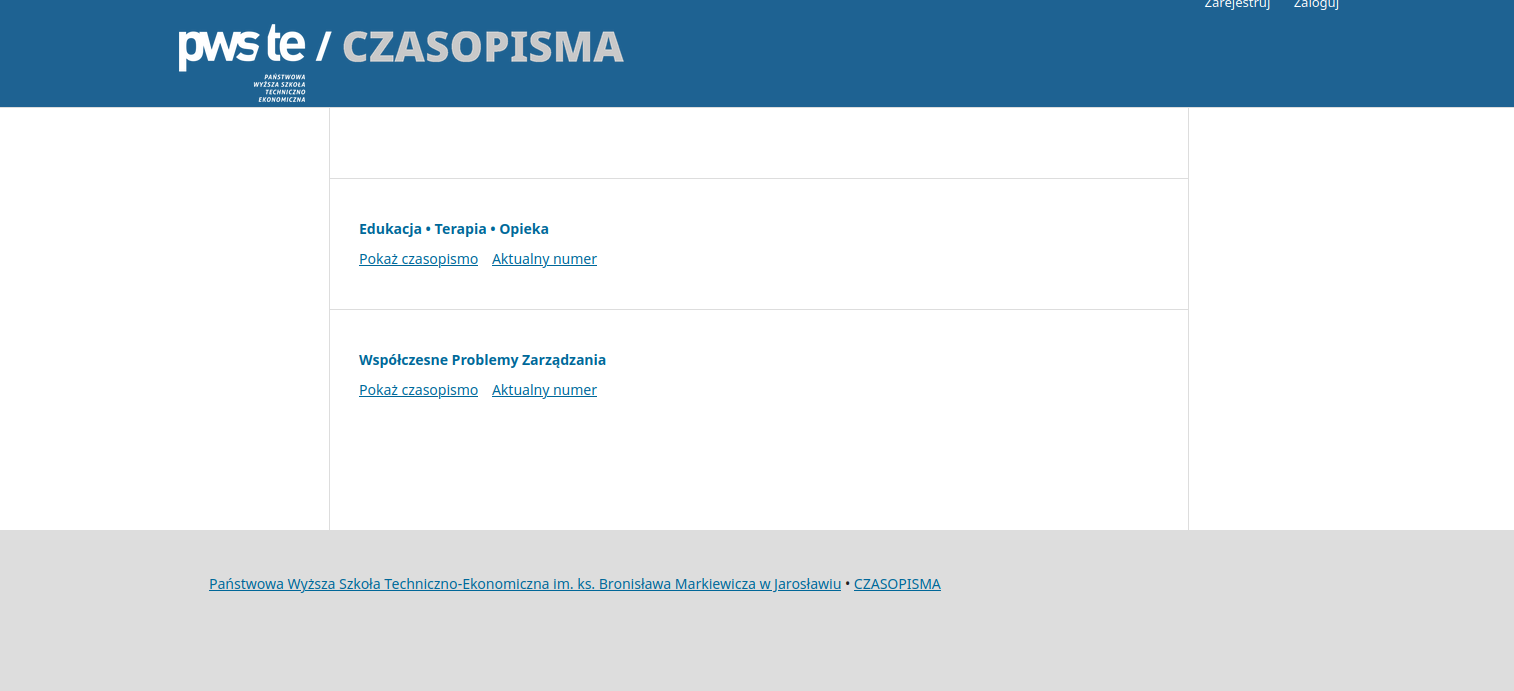
Informacja !!!
Serwis czasopisma został przeniesiony do domeny pansjar.edu.pl. Zalecemy zmianę ustwień zakładek oraz korzystanie nazwy domenowej czasopisma.pansjar.edu.pl. Za chwilę zostaniesz automatycznie przekierowany do serwisu docelowego. Jeżeli chcesz zrobić to automatycznie kliknij przycisk Przekieruj teraz
Przekieruję za : 00:10
